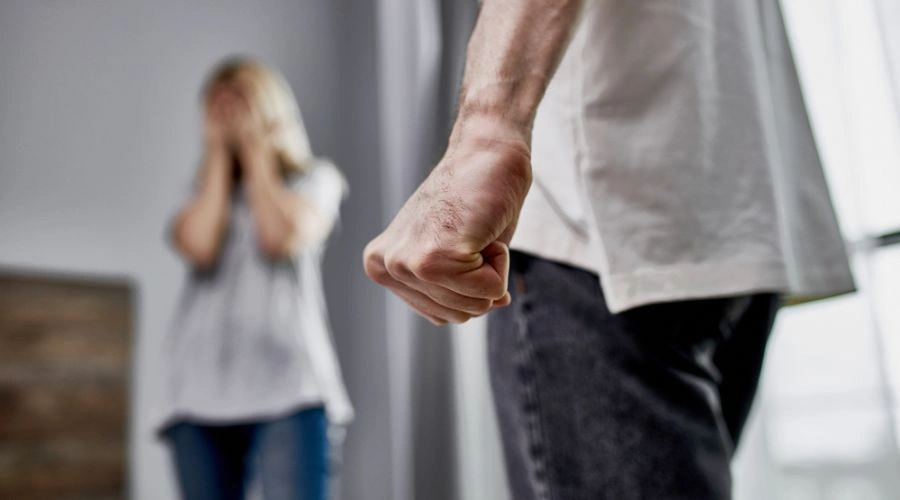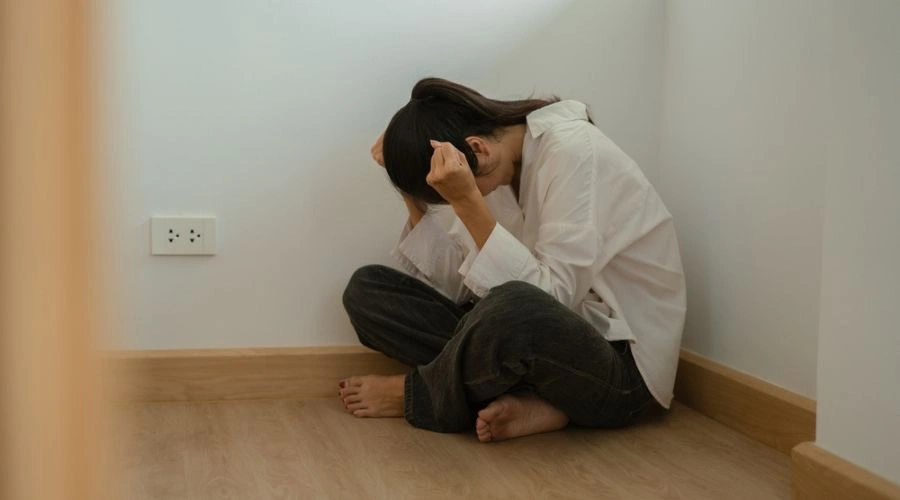Understanding and Finding Care in The Context Of Injustice Trauma
Unfortunately, most people who are part of a marginalized group have experienced injustice. Injustice can lead to various mental health challenges and can also harm physical well-being. Despite the known repercussions, trauma from injustice is often overlooked.
Being informed about injustice and trauma is necessary. Despite advocacy efforts from many, we still have a long way to go in creating a more just world.
So, what exactly is injustice trauma? More importantly, how do you find professional help for the impacts of social injustices? Keep reading to learn more and find out how the clinical experts at Catalina Behavioral Health can help.
Get Confidential Trauma and PTSD Assessment – Call Now!
What Is Injustice Trauma?
Injustice trauma refers to trauma that occurs when someone is unfairly targeted, mistreated, judged, blamed, or blocked from opportunities based on something perceived as a difference in society. A person or group may experience injustice trauma based on sexual orientation, race, disability status, size, socioeconomic status, or something else.
Many people who experience injustice trauma are gaslit or overlooked, thus furthering the emotional toll injustice causes. This is why it is crucial to bring awareness and a no-tolerance policy to injustice.
What are Some Examples Of Injustice Trauma?

To make sense of injustice trauma, it can be beneficial to review its common forms. Here are some examples of injustice trauma you or someone you know may have experienced.
Police brutality
Police brutality is a prime example of how injustice trauma manifests. Being falsely accused or receiving disproportionate legal repercussions is more likely to occur when you are part of a marginalized group or community.
Overlooked interpersonal violence (e.g., domestic violence)
It is common for marginalized groups to experience other forms of trauma, including intimate partner violence. One example of how this can manifest is intimate partner violence in lesbian relationships, whether that occurs in the form of physical abuse, verbal abuse, or stalking.
Due to societal beliefs about gender, an abuse victim may be overlooked in the justice system and may not be taken seriously.
Work and School Opportunities
An unfortunate fact is that most marginalized groups are more likely to experience poverty. In some cases, this can be linked to discrimination, safety issues, and other challenges at work or school. For example, lower levels of employment are seen in the transgender community.
Hate Crimes and Harassment
A hate crime can refer to any type of typical offense (e.g., physical violence) that has an added element of bias. For example, racial bias.
Harassment can be verbal, physical, or sexual. It can occur anywhere from the sidewalk to personal relationships. Online harassment is also prevalent in the modern day, and it can cause severe emotional distress.
Bullying in Childhood or Adulthood
Bullying is considered an adverse childhood experience that can emotionally and physically impact people for life. That said, bullying does not affect children only. Adults, too, can experience bullying and its effects.
Statistics show that marginalization has an impact on the likelihood that someone will face bullying.
What are the Effects Of Injustice Trauma?

Feelings of anger are rightful when it comes to injustice. There are consequences of injustice itself, but what are the other effects? Injustice often acts as a vicious cycle, putting strain on the brain and body.
Trauma related to injustice can impede healing from other life events and lead to other challenges, such as:
- An increased likelihood of mental health problems. For example, anxiety, depression, suicidal ideation, or post-traumatic stress disorder (PTSD) symptoms.
- Lower access to quality physical or mental health care. Socioeconomic status is a common barrier to healthcare among marginalized groups.
- Physical health effects, like difficulty getting adequate sleep, muscle tension, and increased rates of chronic illness are all possible physical symptoms.
- Lack of trust in others (often, professionals and authority figures).
- Difficulty with daily life tasks (e.g., self-care, work).
- Negative beliefs about oneself, the world, or others.
Marginalized groups deserve to heal from unfair treatment. Finding the right kind of emotional support is particularly crucial in this context and can make a major difference in a person’s life. Let’s talk about what that can look like.
Get Accredited Treatment Programs at Catalina
Taking Your Power Back
You can take your power back after injustice trauma. Talking to a mental health professional can help you cope with and navigate the effects of injustice trauma. With a professional, like a therapist, counselor, social worker, or psychologist, you can process grief, work through emotions related to trauma, and find healthy coping strategies.
Therapy also helps with navigating challenges related to communication, negative self-talk, self-care, and distress tolerance. Again, it is critical to find the right support, especially if you’ve had negative past experiences with providers in the past.
Finding Mental Health Support After Injustice

How do you approach finding mental health support after injustice? Affirming care can be incredibly valuable. When it comes to finding mental health support for injustice trauma, one of the best things you can do is find a professional who is trauma-informed and specializes in the group you are a part of.
Some people seek out a therapist or another mental health provider who is part of their demographic group. Usually, this is to avoid problems they might’ve run into in the past with providers who didn’t understand the psychological impact of marginalization or who contributed to further harm.
It’s okay if you need to switch therapists, other providers, or even treatment centers to find the right fit. We pride ourselves on having an inclusive, trauma-informed approach to help meet the unique needs of every client that walks through our doors.
Treatment Options for Injustice Trauma
Many treatment options can be suitable for someone overcoming injustice trauma. Co-occurring mental health issues, symptom severity, and other factors, like whether you’ve had therapy before, can make a difference in what type of treatment is right for you.
Therapy for Trauma Survivors
Types of therapy that may be used to promote healing from trauma include, but aren’t limited to:
- Cognitive processing therapy.
- Prolonged exposure therapy.
- Trauma-informed cognitive behavioral therapy.
Our center uses a blend of various forms of therapy. That way, you can get the benefits of multiple treatment approaches.
Specialized Support Groups
You may find it helpful to join support groups tailored to your demographic as a form of self care practices. This may include options such as LGBTQIA+ support groups and BIPOC support groups. Sometimes, even if there’s not an applicable support group in your area, there will be one that meets online.
Call Catalina to Access Trauma-Informed Care Support Today

Many of us who have experienced a traumatic event, inequity, and similar challenges have been forced to be too strong for too long. Catalina Behavioral Health is here to help you heal and move beyond emotional turmoil.
We are a JCAHO-accredited treatment center in Tucson, Arizona, offering a wide range of services for mental health conditions, trauma, and substance abuse. When you contact us, you can speak with an admissions specialist who will help you find care that meets your needs.
Call our admissions line confidentially to start the healing process today. You are welcome to reach out for yourself or the trauma survivor in your life who is in need of support.
Up To 100% of Rehab Costs Covered By Insurance
Frequently Asked Questions (FAQs) on Trauma from Injustice
What can cause injustice trauma?
Nearly any act where a person is discriminated against, judged, harmed, or otherwise experiences mistreatment because they are part of a marginalized group can cause injustice trauma.
Can injustice cause PTSD?
Experiencing or witnessing any traumatic event can lead to post-traumatic stress disorder (PTSD). Examples of traumatic events can include but aren’t limited to natural disasters, war, systemic racism, and being a victim of crimes such as sexual assault.
In other words, yes. Occurrences related to injustice can cause PTSD. Unfortunately, marginalized groups are statistically more likely to be affected by the condition.
References
- Williams, M., Osman, M., & Hyon, C. (2023, January 17). Understanding the psychological impact of oppression using the trauma symptoms of discrimination scale. Chronic stress (Thousand Oaks, Calif.).
- thisisloyal.com, L. |. (2024, November 21). More than 80% of transgender employees in the US have experienced discrimination or harassment at work. Williams Institute.
- Hate crimes | Federal Bureau of Investigation. (n.d.-c).
- Shetgiri, R. (2013). Bullying and victimization among children. Advances in pediatrics.







